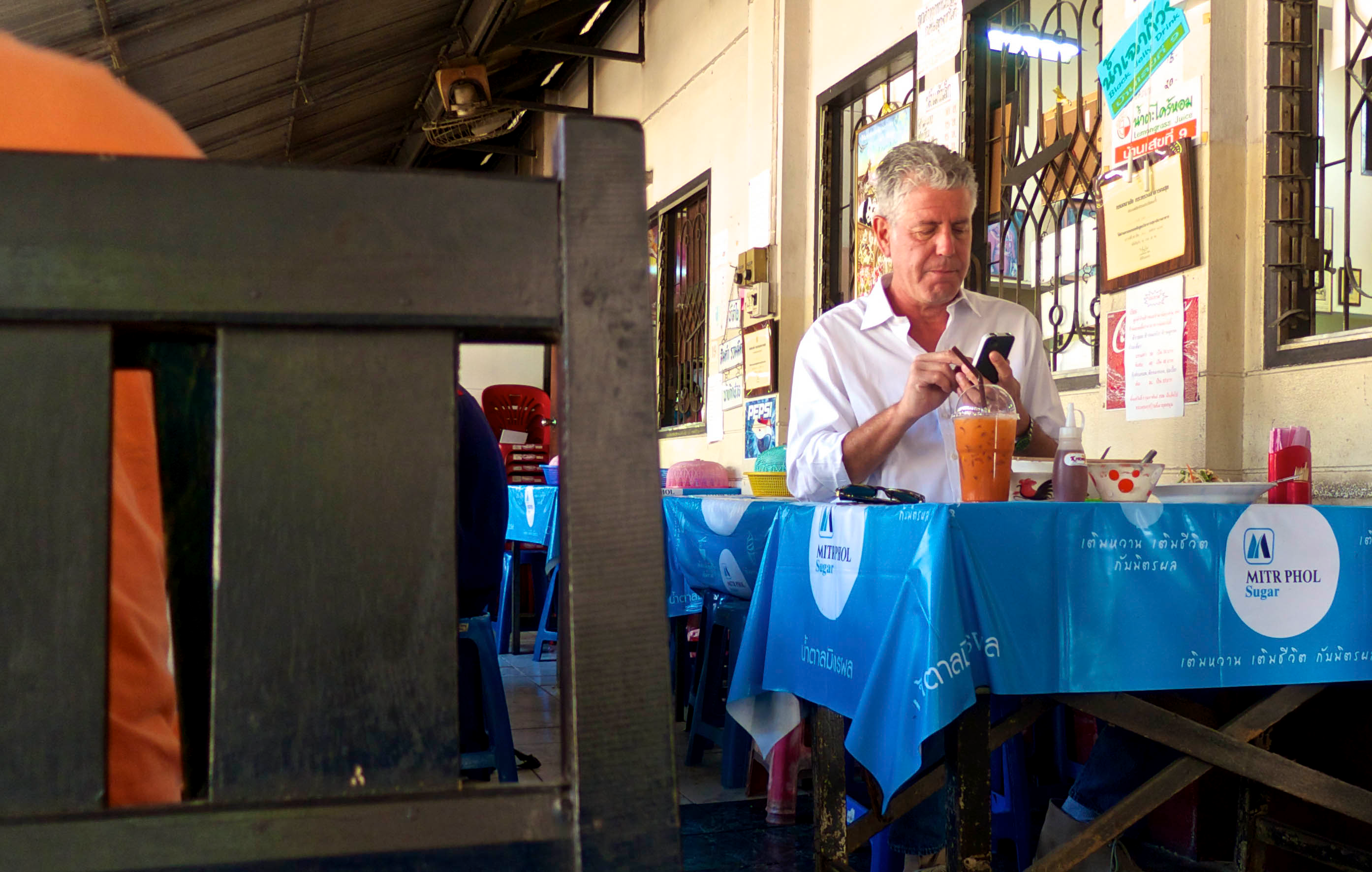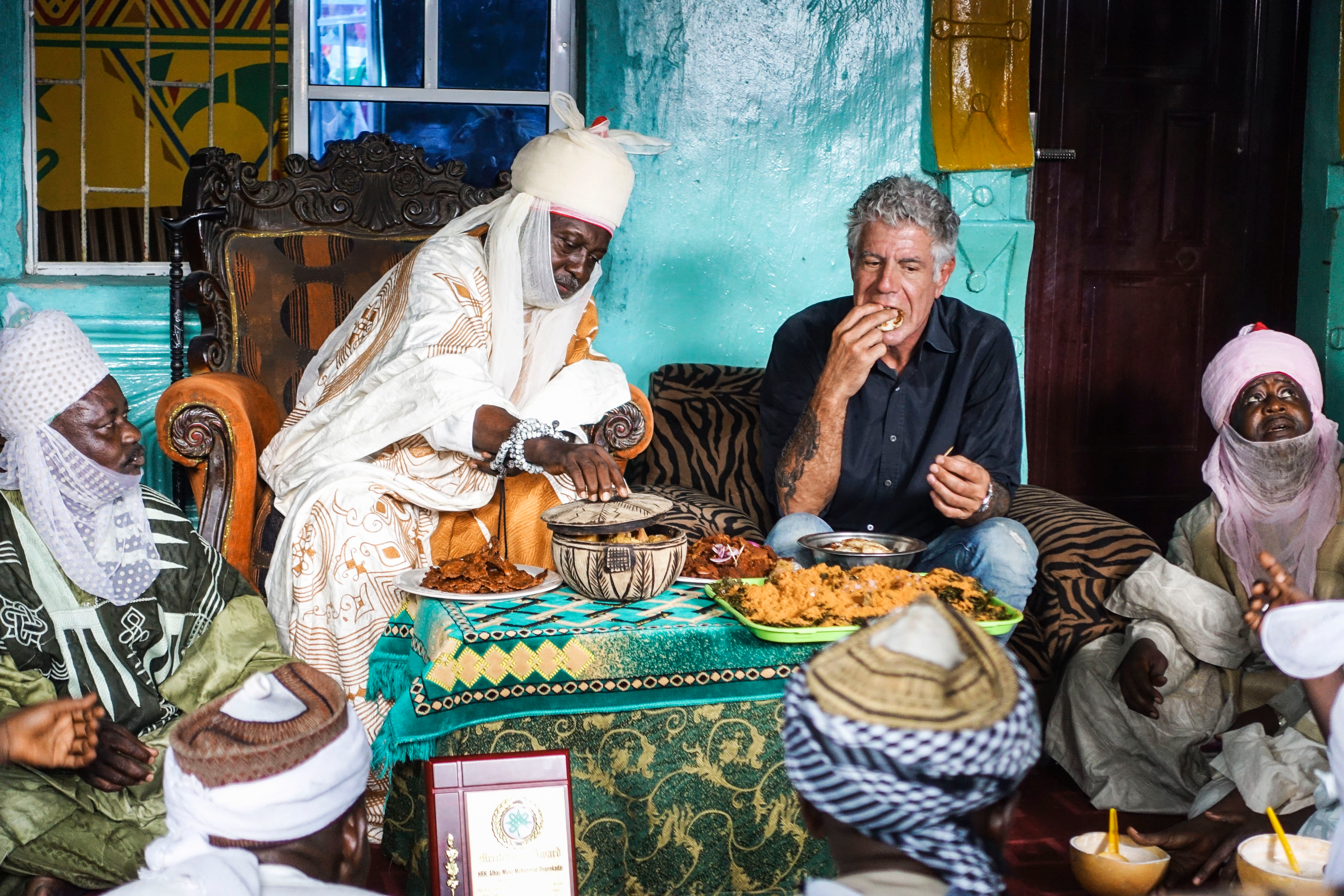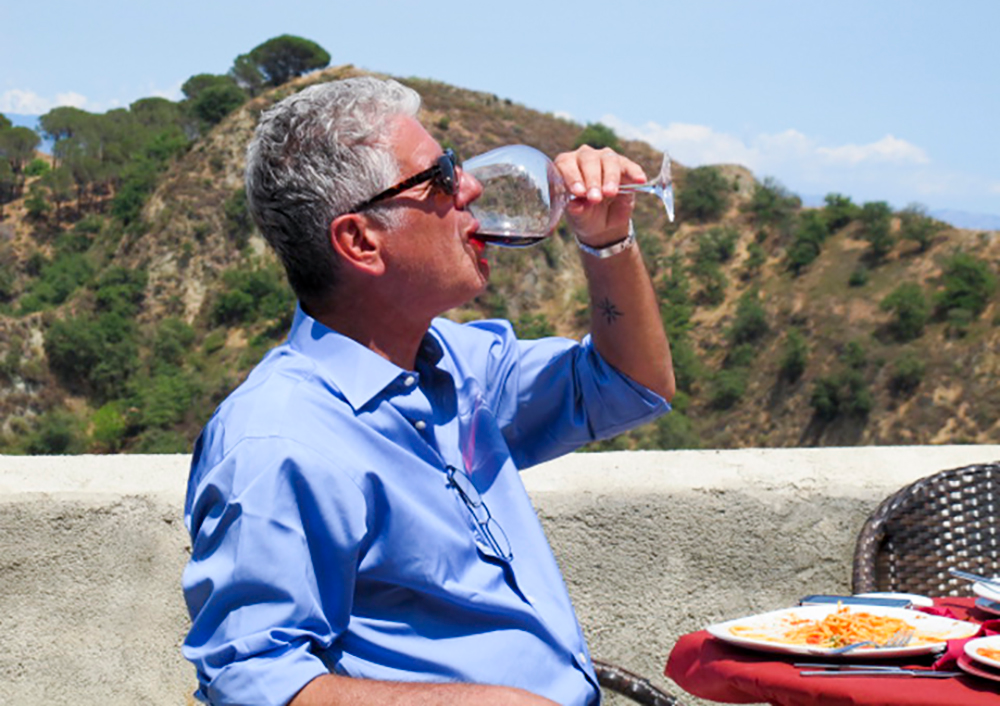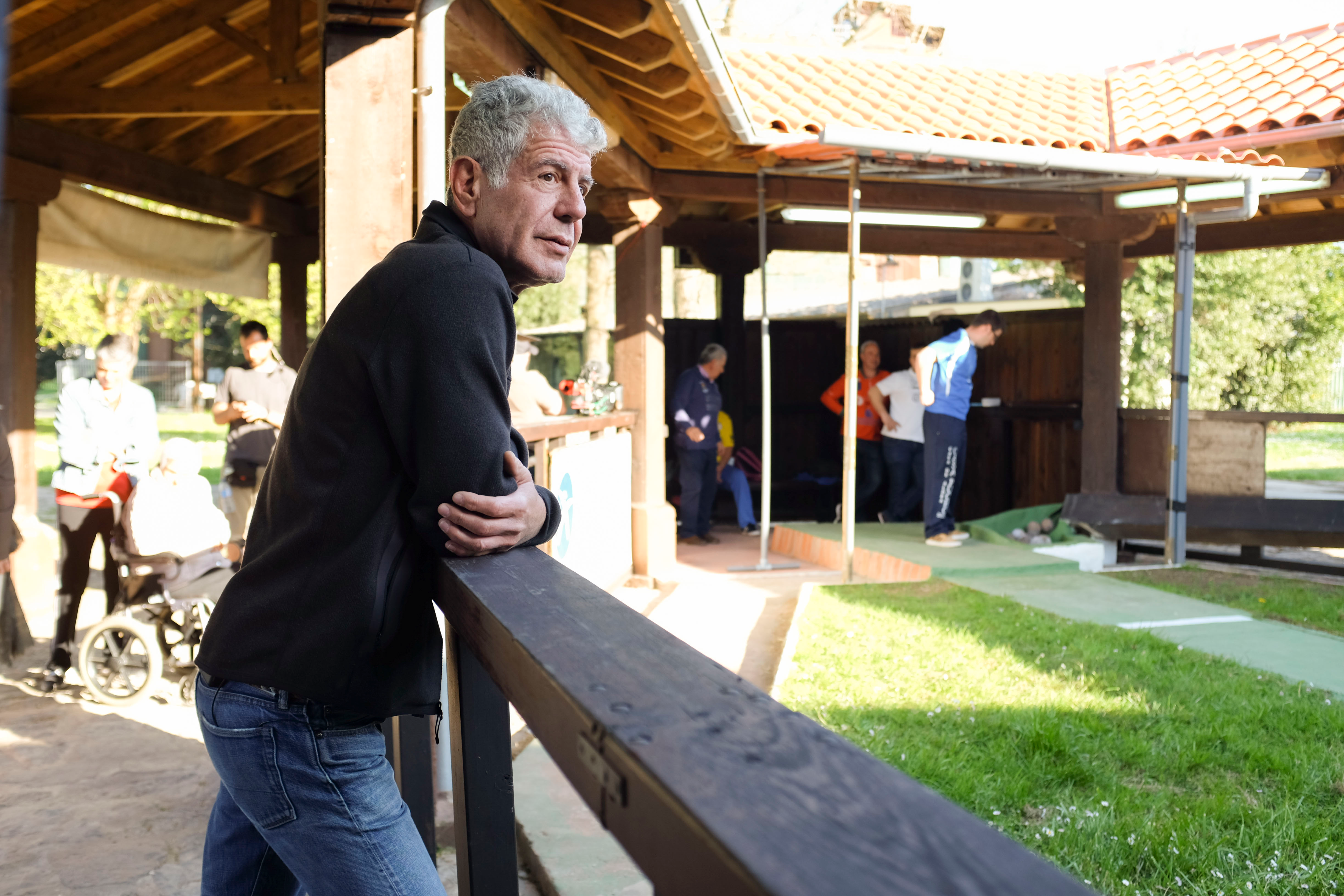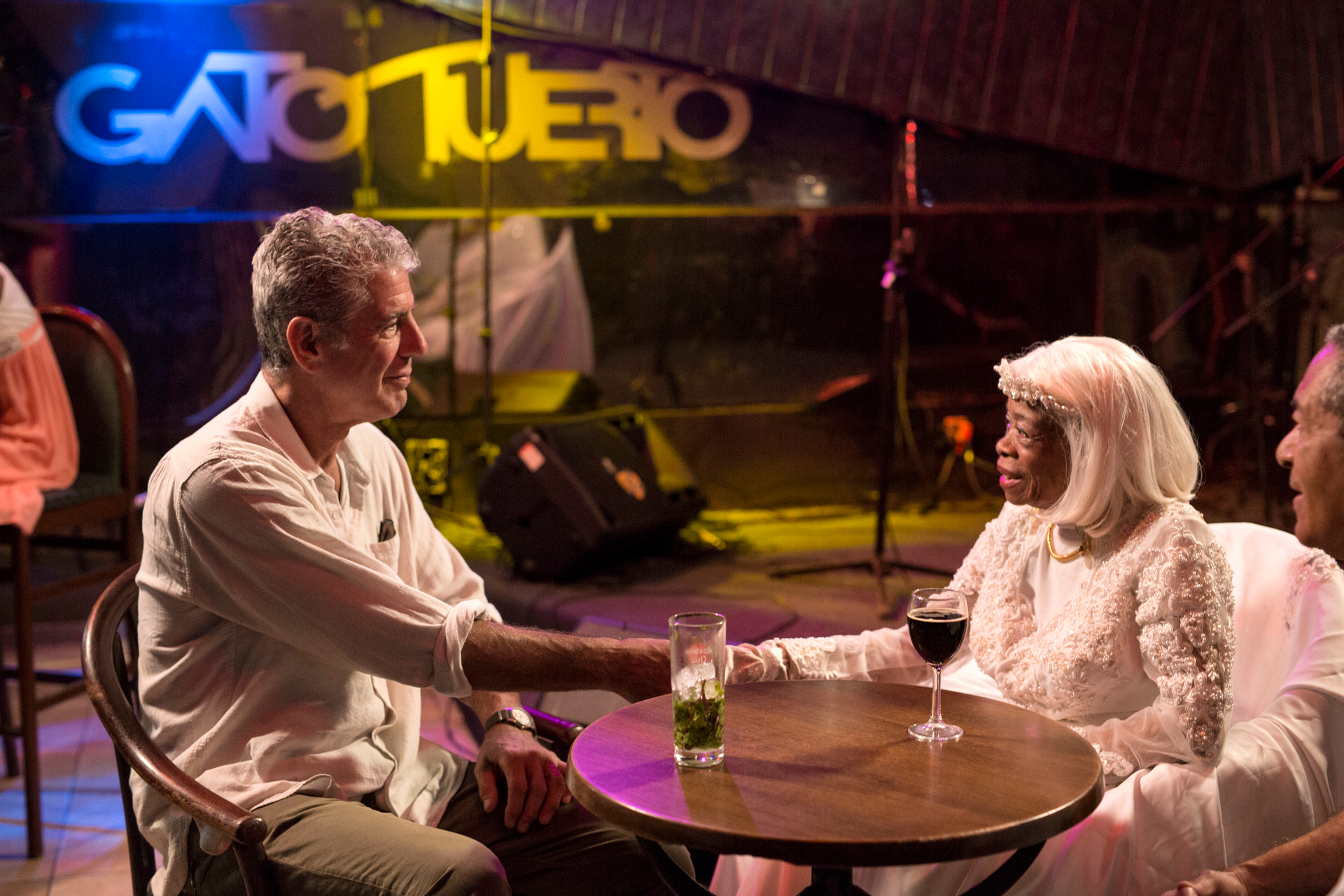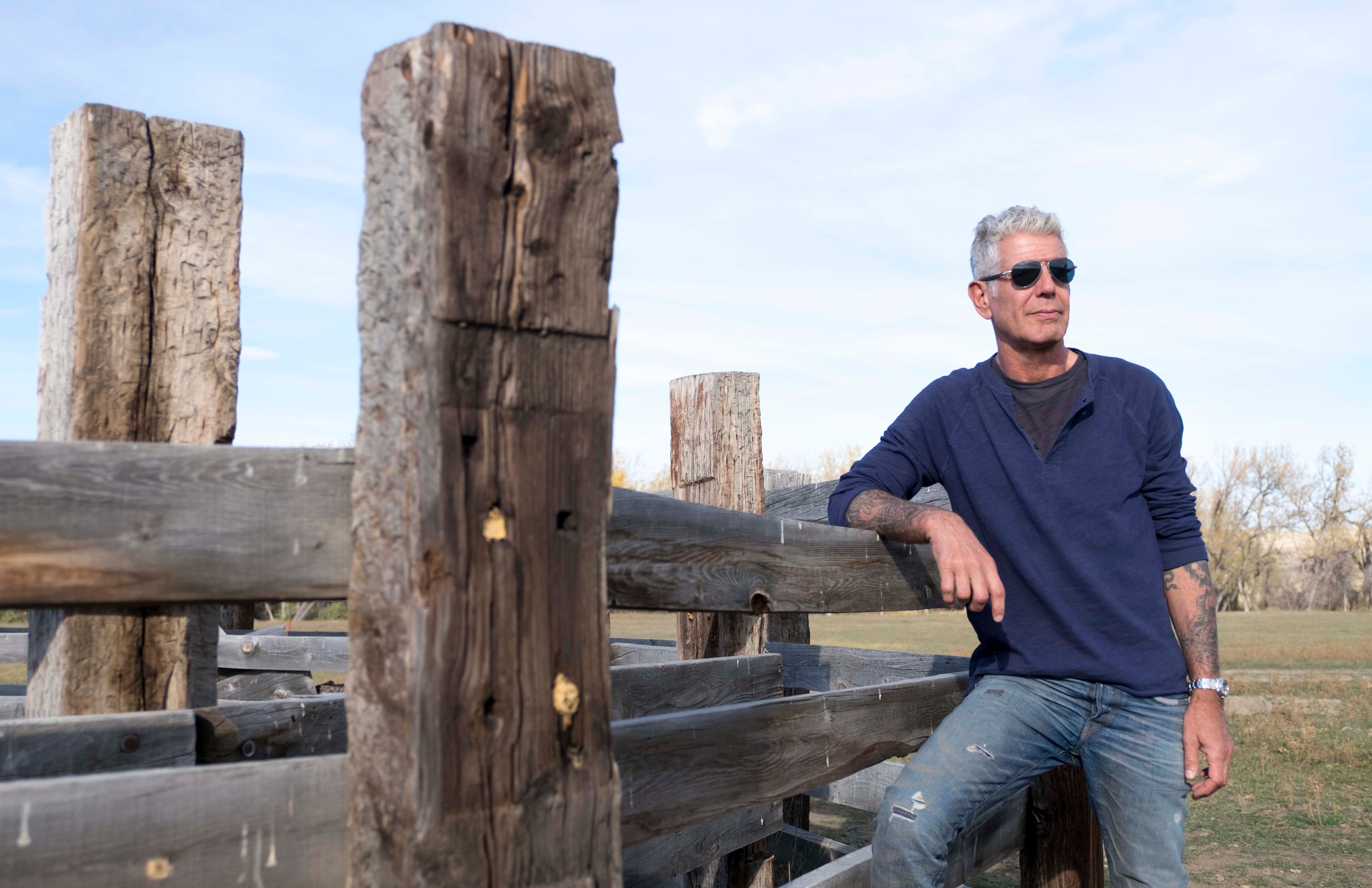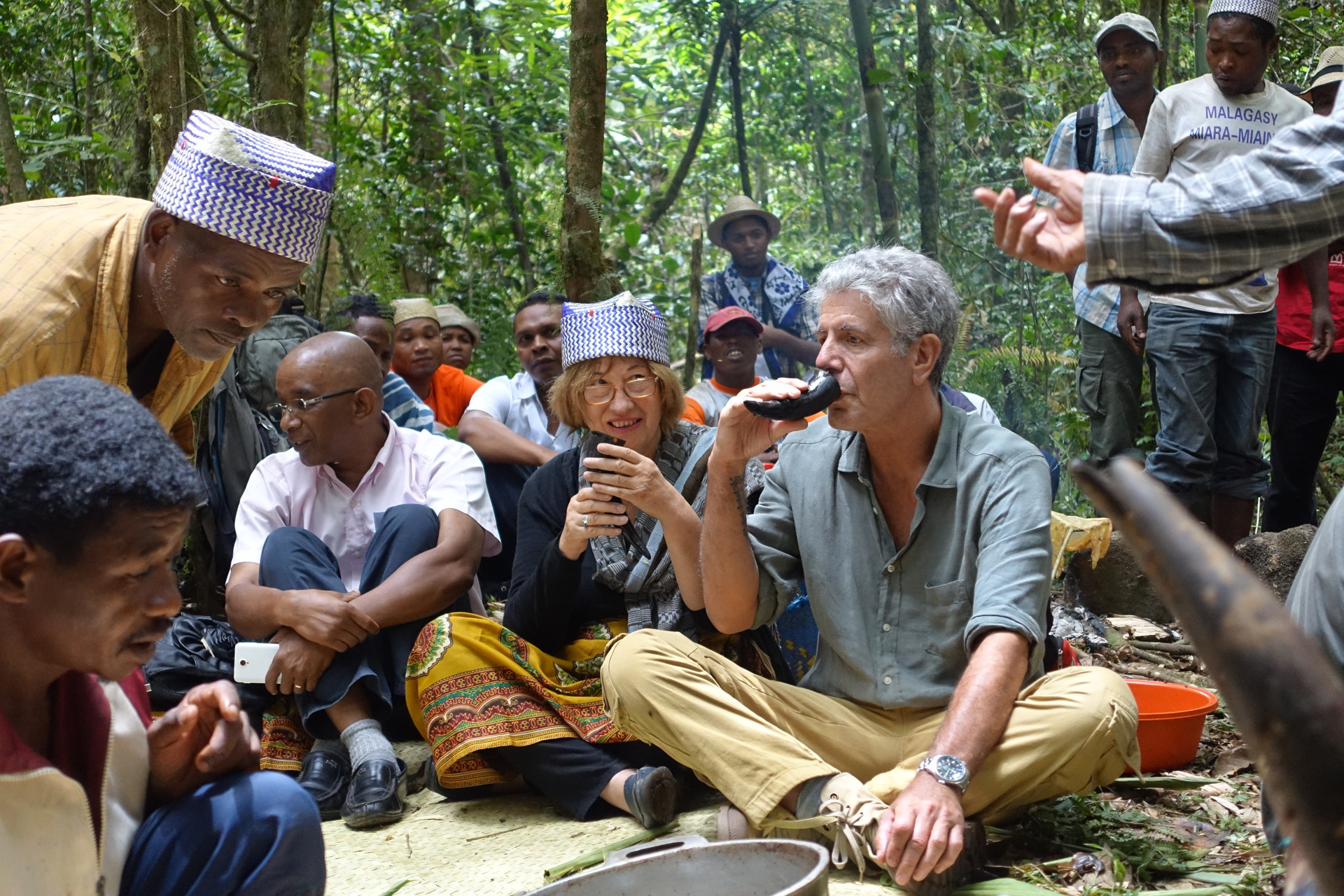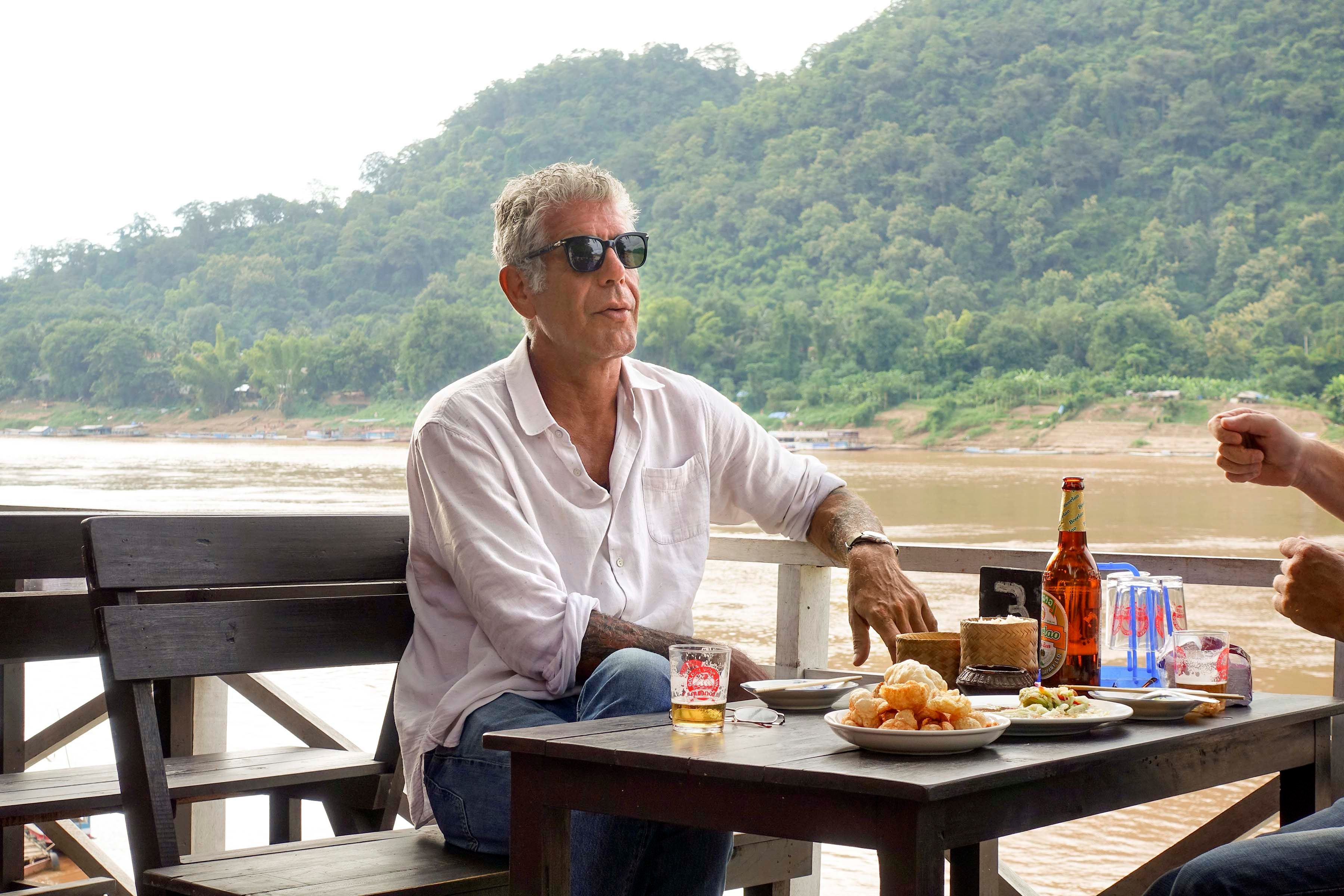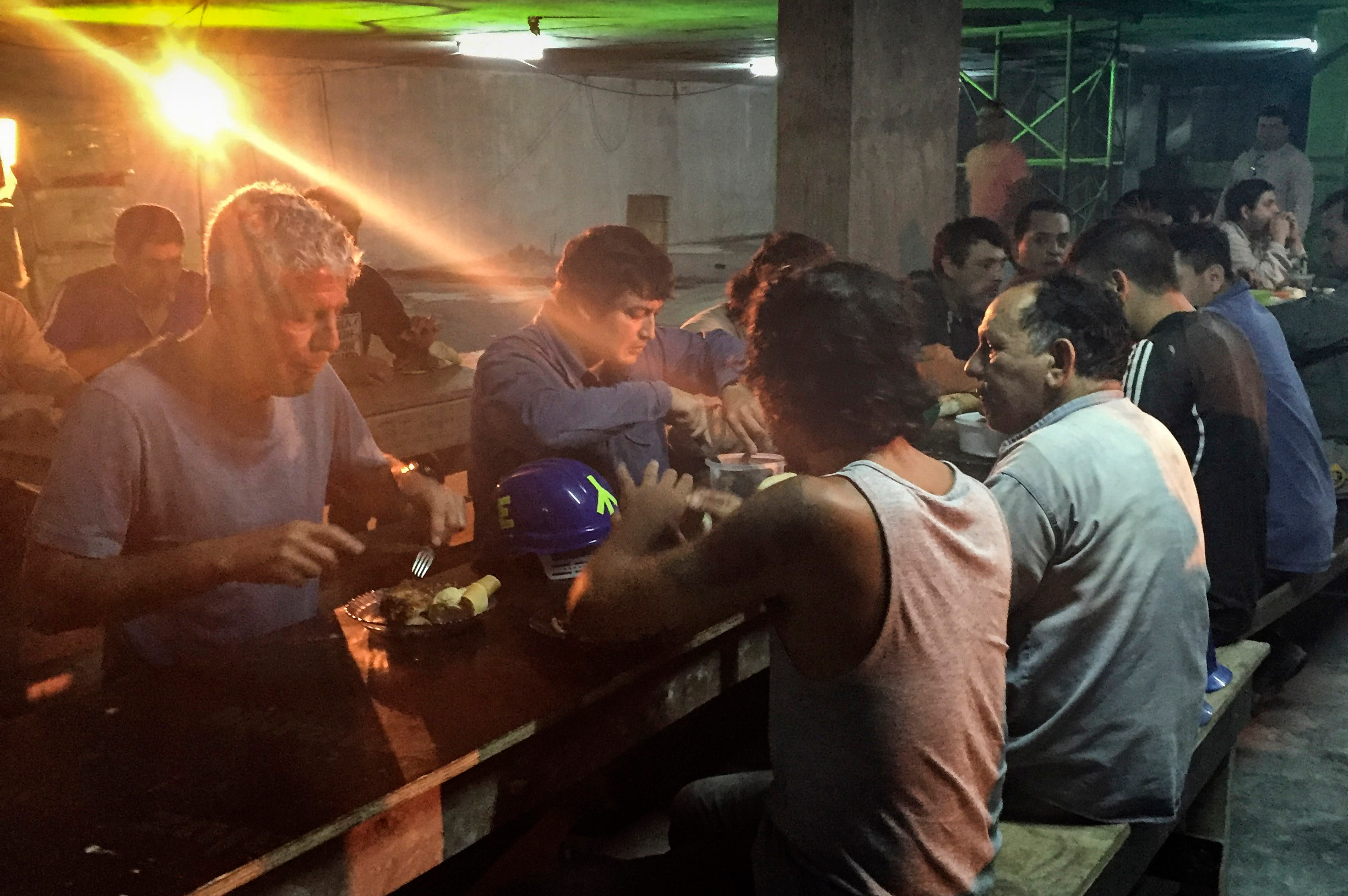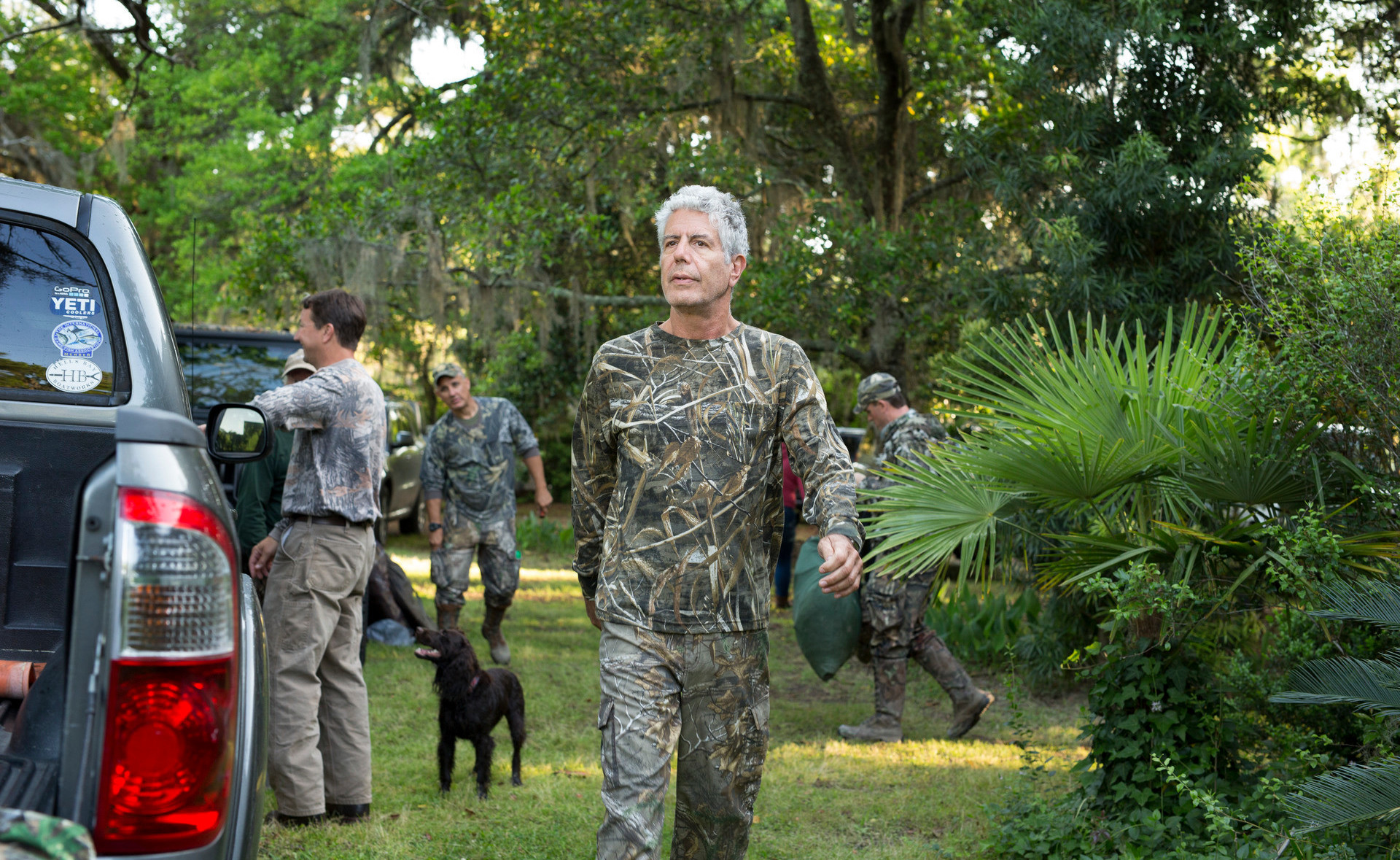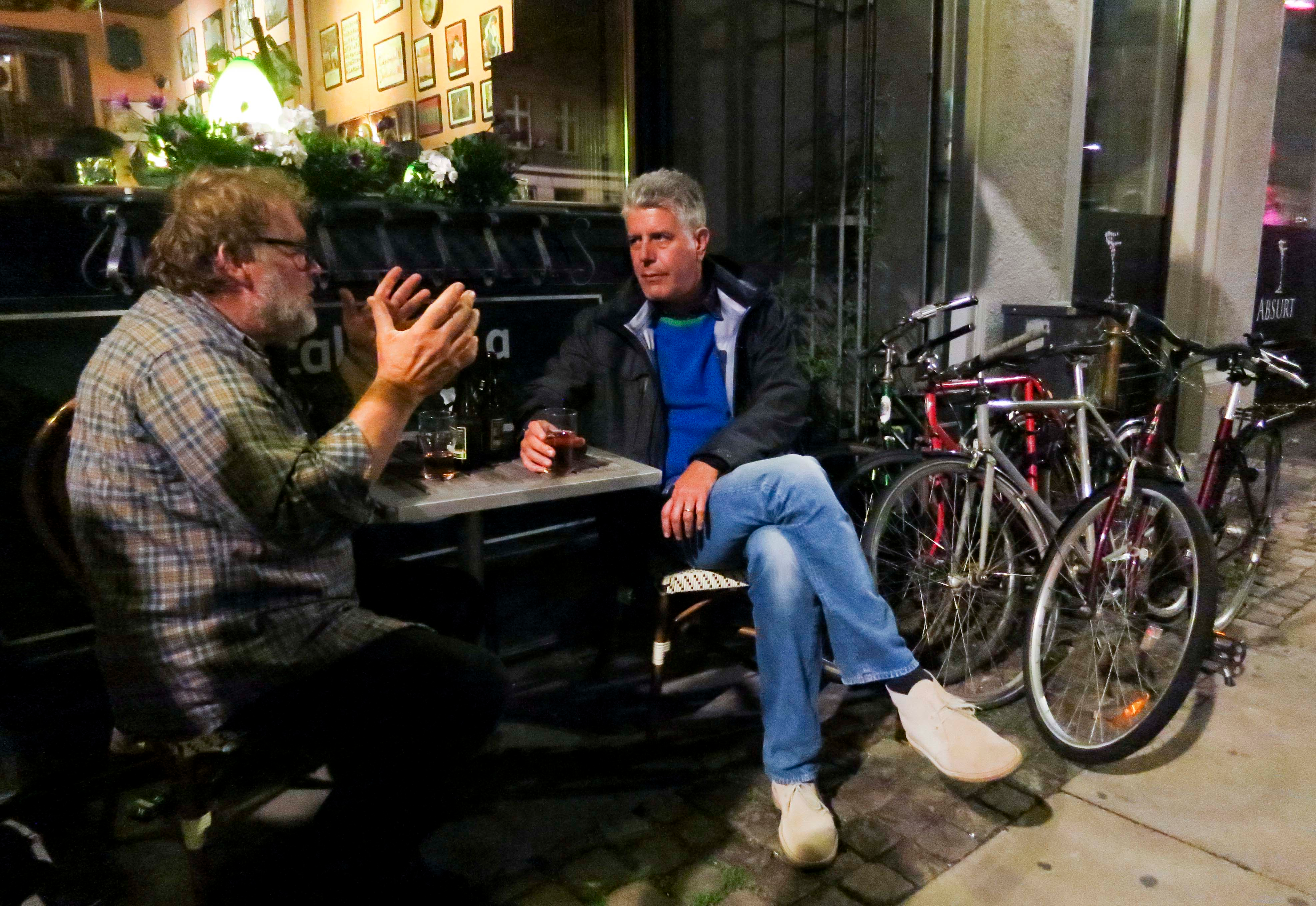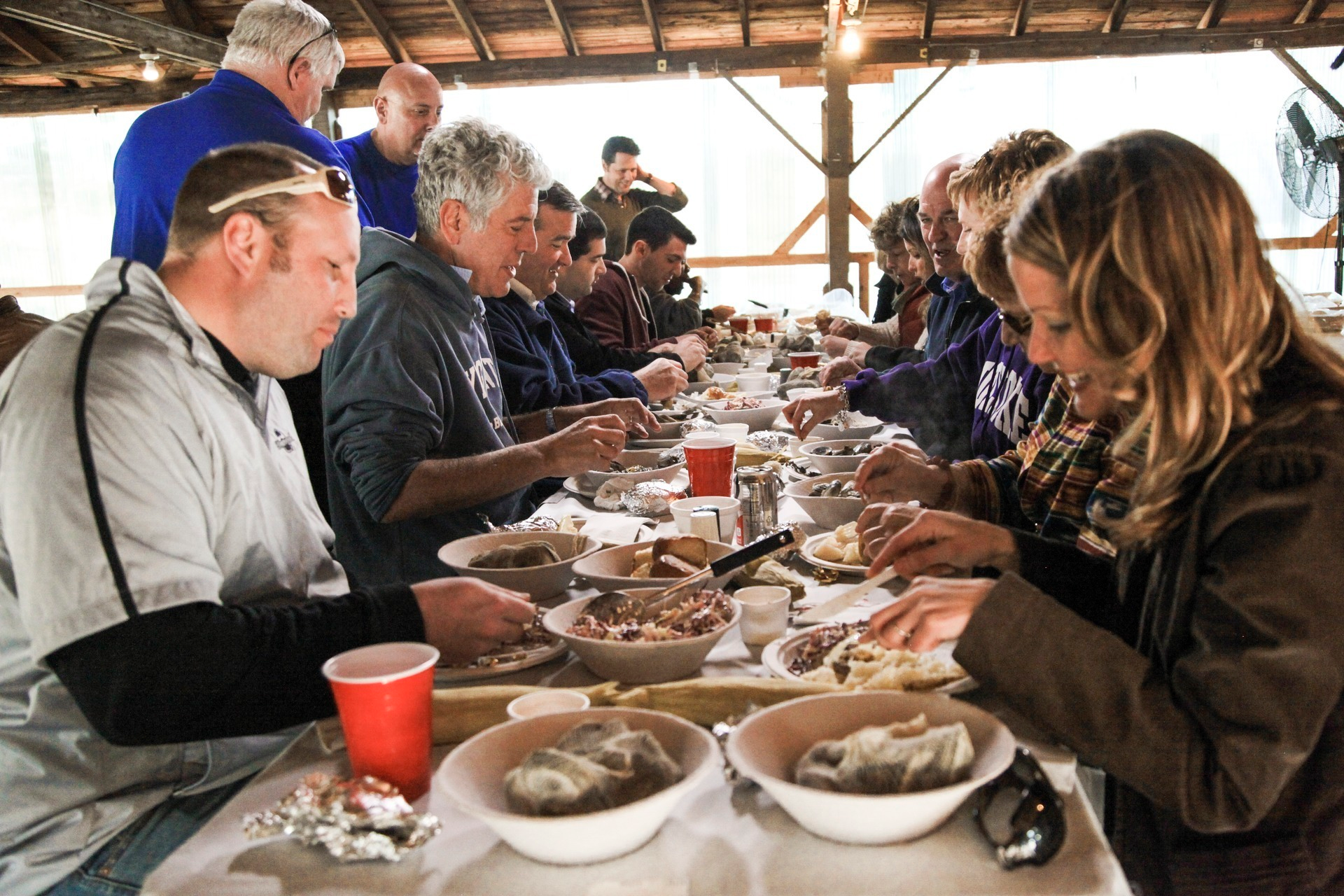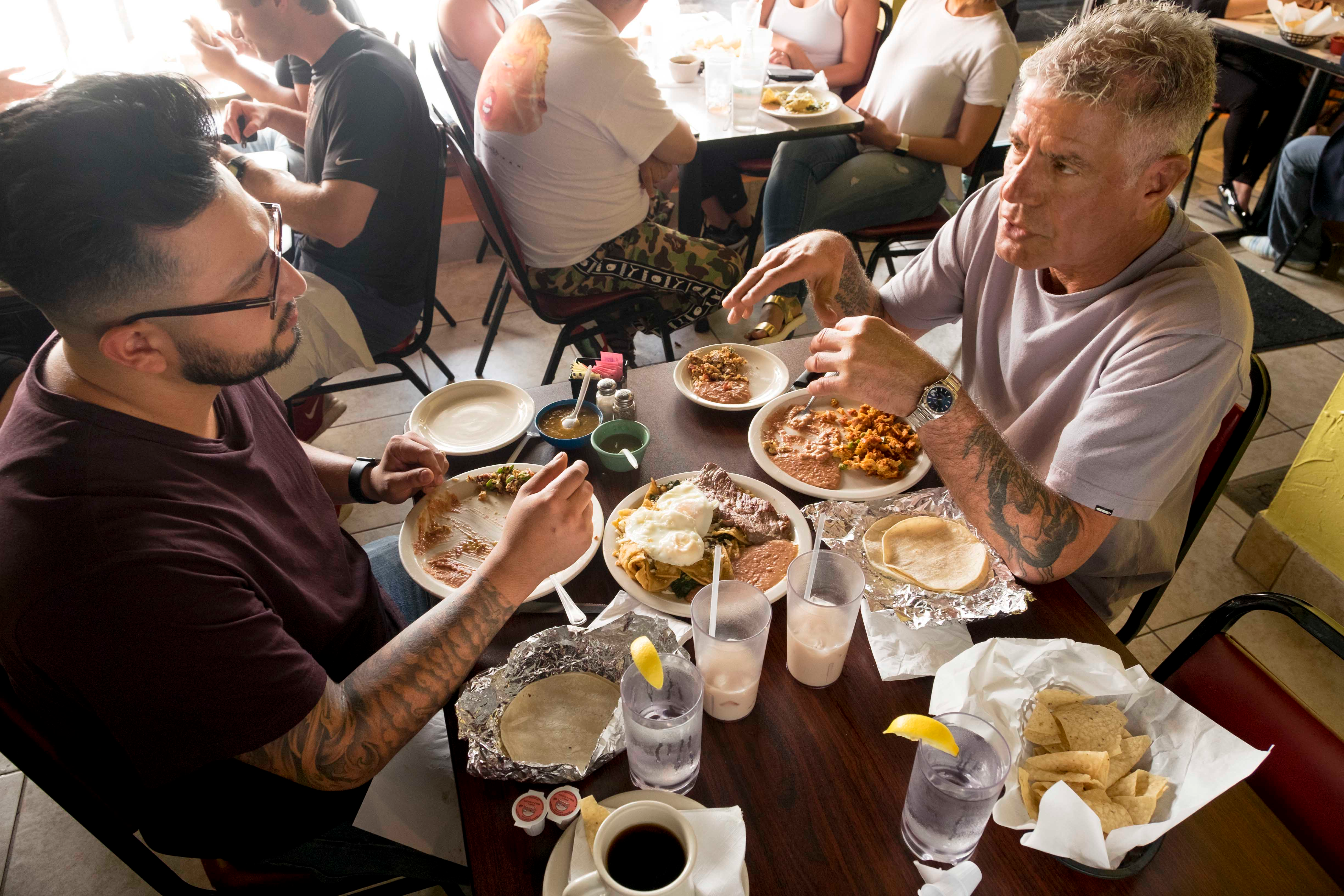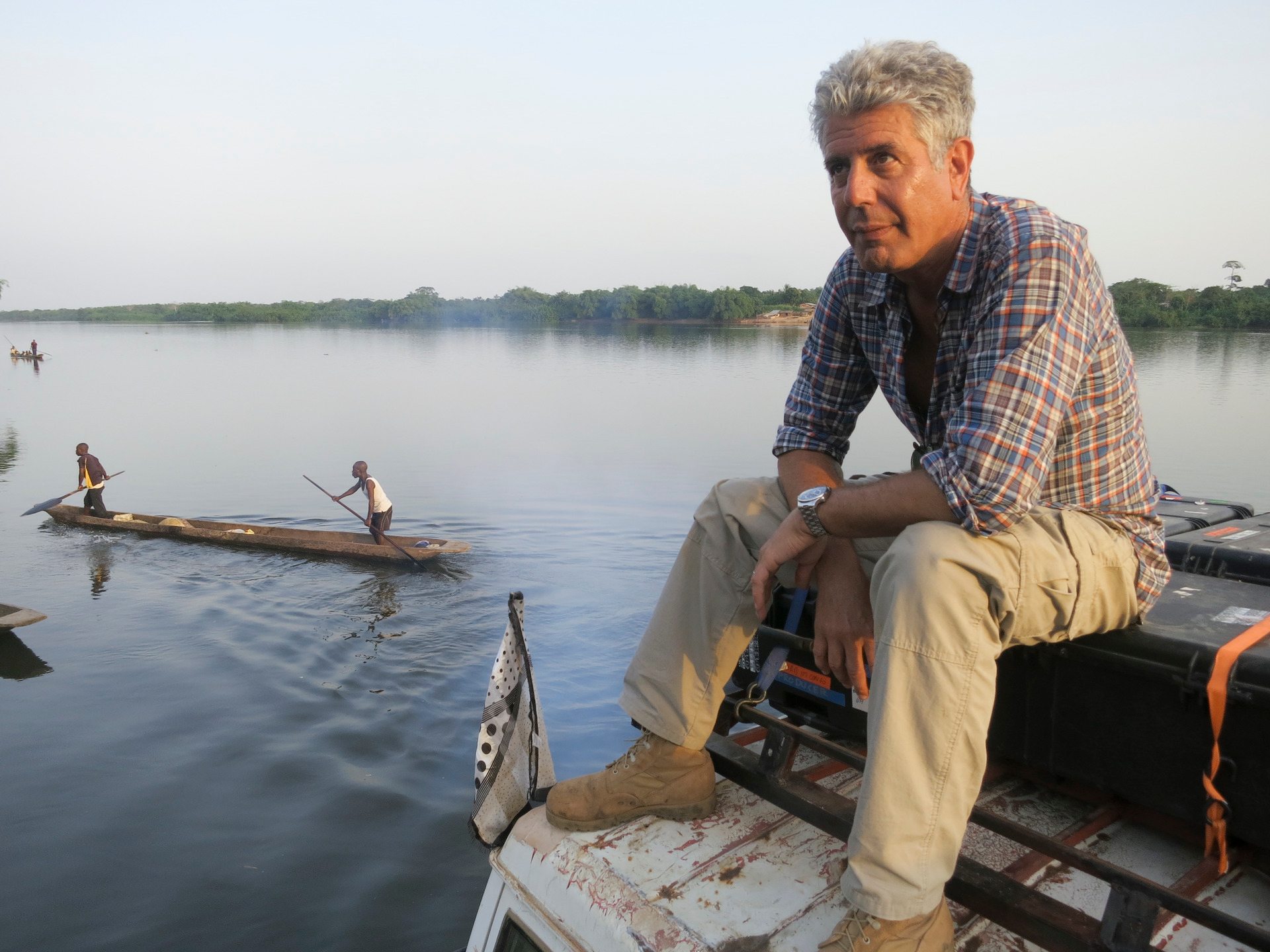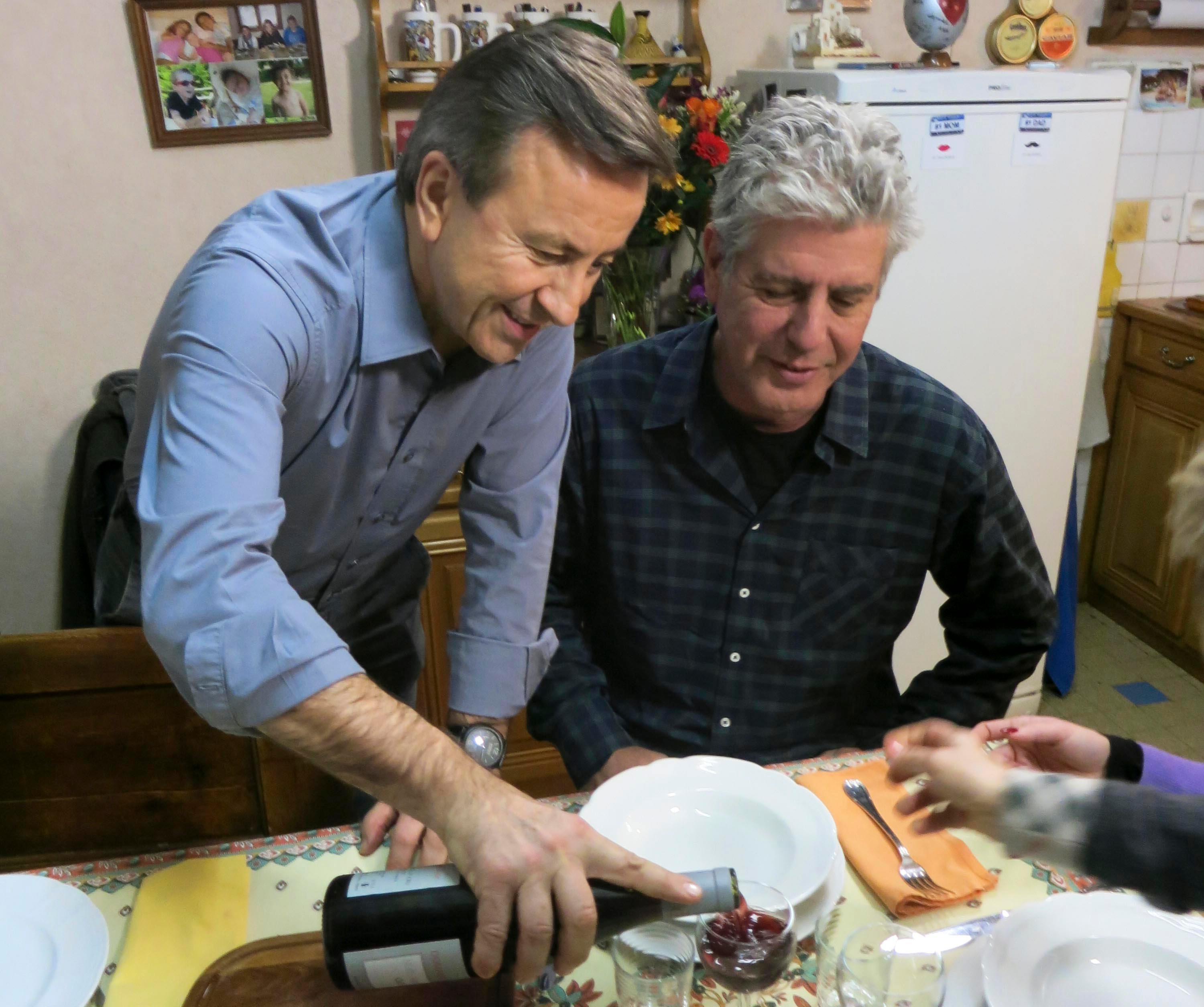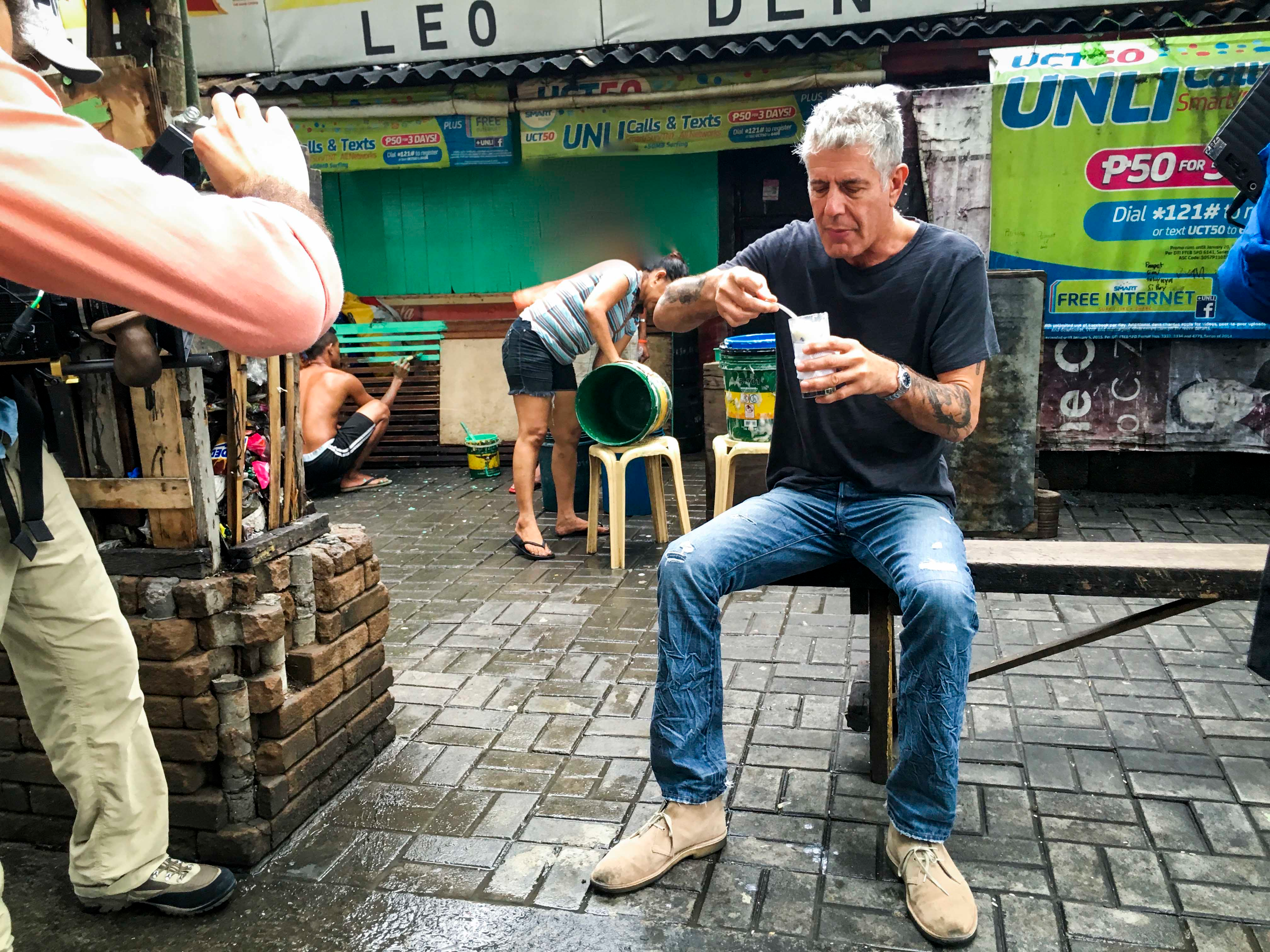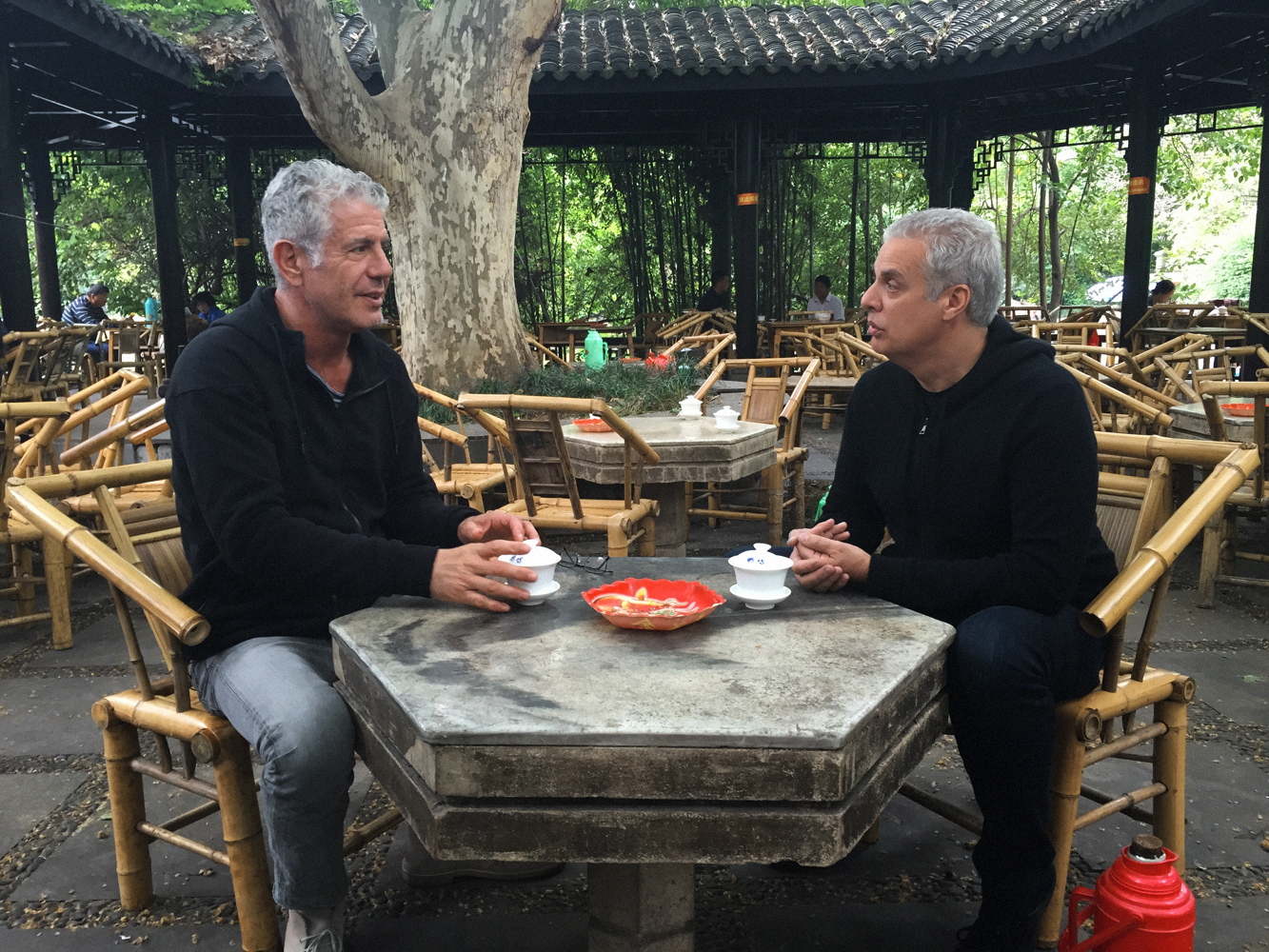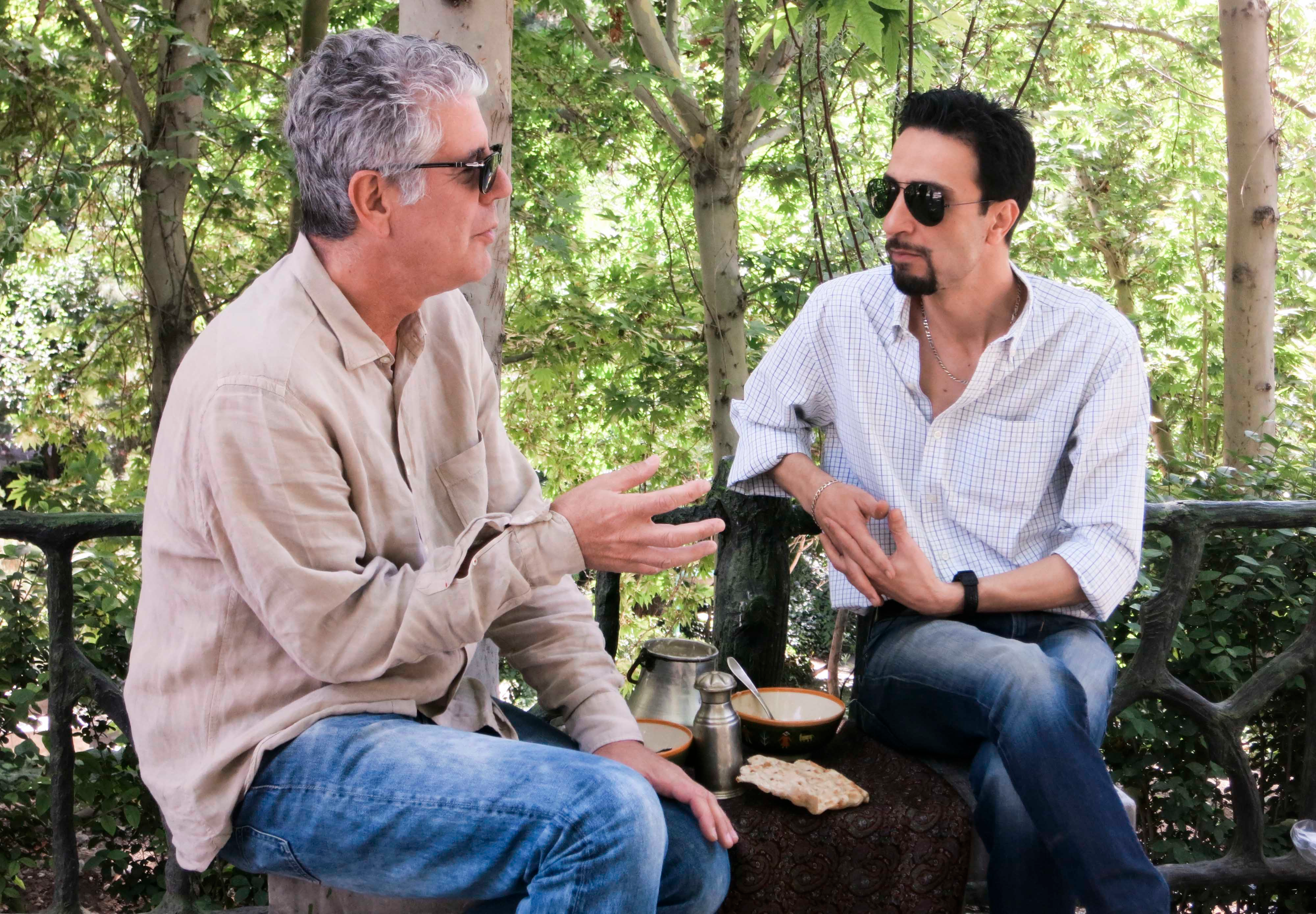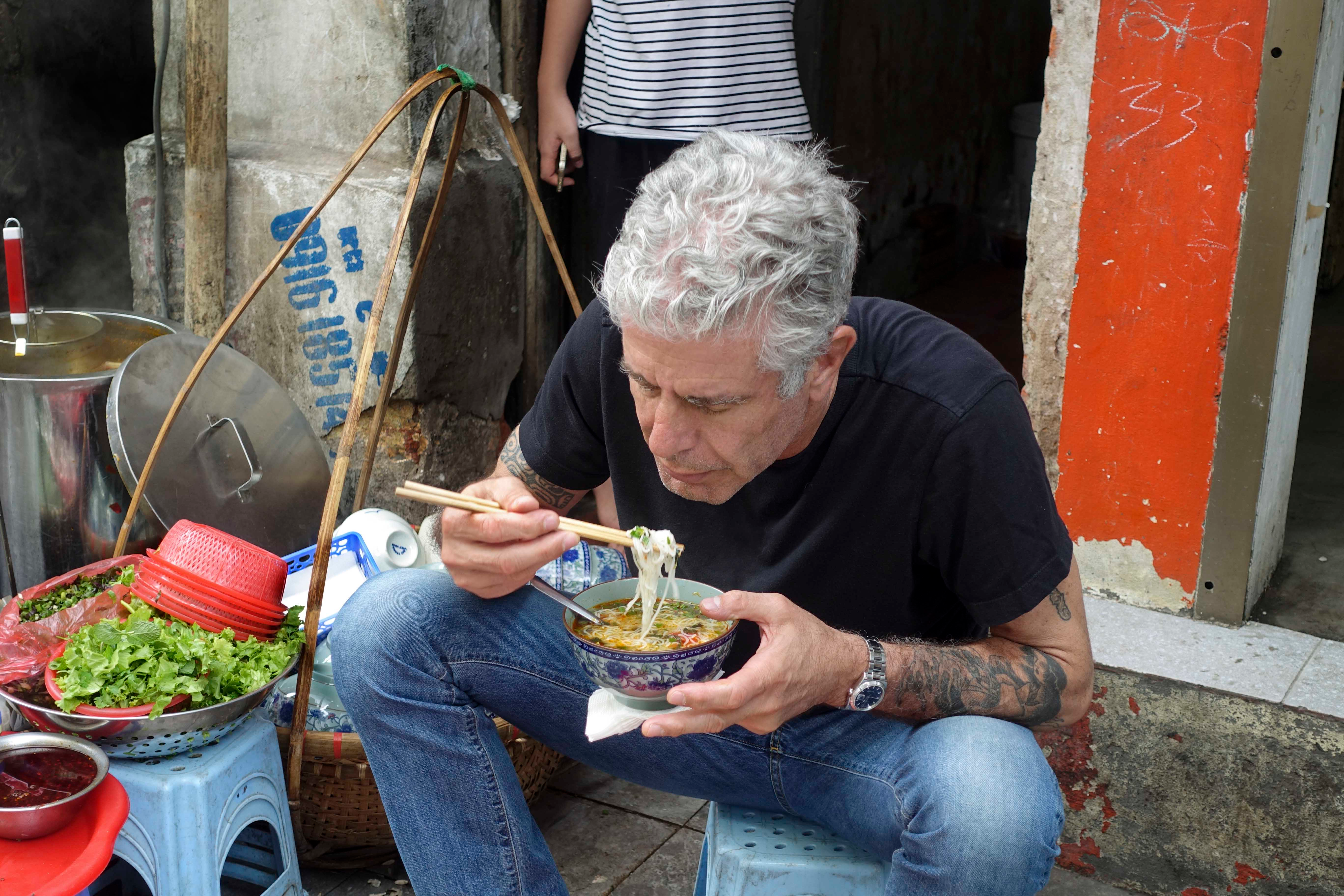I Took A Walk In This Beautiful World: The 20 Essential Episodes Of Parts Unknown
We may receive a commission on purchases made from links.
How do you pick the 20 best episodes of Parts Unknown? The answer is, with great difficulty. How do you compare an episode of formal daring, like "Korea," with one of political significance, like "Jerusalem"? What's more important—great writing, or great conversations? Where do the relationships fit in? In hindsight, perhaps we should have given a bonus to any episode where the intrepid host got a tattoo.
In the end, we just went with our guts. Bourdain said of Vietnam, that it just smelled right. It was a place he fell in love with in minutes, and returned to again and again. That seems like a pretty good strategy. There are episodes in this list that are hard to watch, but also lovely; many which may make you feel better about humanity in general; some that leave only questions, but good ones. All are impeccably made. All have that little something extra, some touch of Bourdain's that made them special and surprising. We love these episodes, and think you will, too.
20. Thailand (Season 3)
There is no shortage of incredible cuisine on Parts Unknown, but often, the meals are a means to an end: You sit down with someone for breakfast or over a beer, and the conversation flows. Not the case here. There's plenty of good conversation, and it flows as freely as extensive drinking will allow, but the Northern Thai food—and the manner in which it's consumed—is the main event. A film projector acts as a framing device, replaying the hazy, occasionally disorienting memory of Bourdain's wild night out with chef Andy Ricker (of Portland's Pok Pok)—wobbly, dreamlike, as the two men sweat in kind while eating spicy dish after spicy dish throughout Chiang Mai. The seed at the center of the boozy, chile-laced apple, the tiny piece from which the episode's emotional undercurrent grows, is the notion that sometimes, a place just speaks to you, opening your mind (and your palate) to corners of experience you've never encountered. It presses into all the cracks, lending a slightly forlorn feeling to an otherwise raucous hour, and that, too, is appropriate, for who among us has not had a few too many and found themselves waxing rhapsodic about the things unsaid, places unexplored, and many incredible tastes unsavored?
Key Scene
It's rare that someone successfully wigs Bourdain out, but Ricker's frank description of one of two blood soup options, coupled with a casual reference to parasites, sets Bourdain's head spinning. That said, he was pretty drunk already.
19. Lagos (Season 10)
Part of what makes Parts Unknown the greatest food and travel show of all time is that it isn't either, really. It's about traveling, and food is perhaps its most useful tool outside the camera. But at its heart, it's a documentary series that aims to capture the essence of a place—sometimes also of a moment, person, relationship, or experience—using all the tools at the disposal of a wildly talented crew. So for "Lagos," the Parts Unknown team does something that it does for many of the show's most accomplished episodes: They identified an essential quality of the place, and figured out how to visually or narratively represent that quality. Enter director Morgan Fallon, a frequent cinematographer for the series (as well as for No Reservations), who replicates the tireless hustle and bubbling enthusiasm of the city with distinctive 16mm filmmaking. It's a combination that makes the experience of accompanying Bourdain to these unforgettable places—the bustling Computer Village, floating "city within a city" Makoko—all the more visceral. The extra effort is appropriate for an episode focused on people determined to make a better life not just for themselves, their families, and their communities, but for their country, and for the world at large.
Key Scene
Bourdain has a thoughtful conversation with Nigerian food bloggers, all women, who explain the ways the changing world is also changing the country's cuisine—and one of them critiques his beer-pouring technique.
18. Sicily (Season 2)
Name another TV host who'd be so willing to document his own minor meltdown and the failure of his show to do what it set out to do. Name one so willing to let us see him playing the part he's supposed to play, lying the whole time, and blitzed out of his mind on Negronis—so much so that he's ruining his birthday, which also happens to be the birthday of the stone-faced miserable stranger across the table. The way Bourdain writes it, he saw a local fixer throw dead sea creatures into the water for him to "catch" and the whole trip was unsalvageable from there on out. From an outsider's perspective, both he and the episode seem to bounce back, though the proceedings are considerably more subdued than they might otherwise have been.
Key Scene
Limp tentacles sinking like a stone in water Bourdain might call "gin-clear" are pretty hard to top. Luckily, he also has a world-class coping mechanism: finding the nearest kindly nonna, bringing her flowers and wine, and eating whatever she cooks.
17. Asturias, Spain (Season 12)
In our breakdown of the seven episodes in this final season of Parts Unknown, there's much mentioned of silence and absence. It's inevitable. Had these episodes contain the usual amount of voiceover from Bourdain, it's still likely that the viewer would feel an absence—the context of Bourdain's death makes the experience more mournful, and it's likely that the people putting it all together were struggling themselves. The Parts Unknown team does an admirable job of making these episodes work in spite of all of that, using animation, interviews, and voiceover work from others (here, chef/hero Jose Andres) to attempt to fill the gap, but it never feels like the circumstances of the season are being denied. It's most true here. This is a joyful and often funny hour, buoyed by the ebullient nature of Andres, whose delight in bringing Bourdain to his birthplace leaps through the screen. This writer, at least, finished the episode filled with gratitude that the friends got to share this experience. The irresistible warmth does not diminish the heartache felt so palpably throughout the season. Like cider poured to enhance flavor, the joy makes the pain stronger, but sweeter, too.
Key Scene
On his own for a few moments, Andres speaks at length about how much it means to him to have Bourdain with him, and why his friendship means so much. It's a nice counterpoint to the lighthearted, silly banter that characterizes much of the episode.
16. Cuba (Season 6)
One of the most reliably compelling categories of Parts Unknown episodes is the hour that aims to dispatch the preconceptions of viewers regarding a particular place. In a sense, that's "Cuba," an episode that begins with footage of JFK on television and a cute curly-headed moppet climbing under her desk to avoid nuclear annihilation. On the other hand, how much do we really know about life in Cuba, anyway? Among the most impressive elements of this hour is, quite simply, that it's not an introduction to the island that's a mere 90 miles from the Florida coast. If you're looking for Havana And Cigars 101, you'll need to look elsewhere. There's still some good overview stuff, but it's all wrapped up in the context of the current moment. What it means when a sushi restaurant opens (10 years ago, no such business would have been allowed). What will happen when the cruise ships start steaming toward the shore. How the economy will change, and has already begun changing. A place in transition deserves a show willing to dwell in the ambiguities, to ask questions for which there are no easy answers. It got that show in Parts Unknown.
(This episode earned the show an Emmy nomination for its cinematography.)
Key Scene
The camera follows Juana Bacallao, a.k.a. "Juana La Cubana" and a grand dame of the Cuban music scene, as she leaves for a gig to the cheers of, well, everyone she passes.
15. Montana (Season 7)
A smart episode of Parts Unknown is a common thing. So is a personal episode. The complex "Montana" is both at once, with a streak of political awareness and romantic color that adds additional contrast and complexity in every act. Bourdain goes trout fishing and pheasant hunting, watches horses gallop and feasts on buffalo, experiences his first supper club and drinks a lot (it's simply what's done). And through a great deal of that time, he sits with Jim Harrison, celebrated poet and novelist, whose verse sets the tone for this lovely episode and who died not long after its filming. We've written this elsewhere in this series, but it's sometimes apparent when a place has truly gotten under Bourdain's skin by the tenor of his prose. The narration is a highpoint of nearly every episode of Parts Unknown, but every so often, he really swings for the fences. "Montana" is, in that respect, an out-of-the-park home run, rich with vivid but spare language. The same is true of Harrison's verse, which winds through the episode, lending a solemnity and depth of feeling rarely matched in a series short on neither.
Key Scene
Bourdain ventures into a mine and gets to blow some shit up, which is fun on its own. Then one of the miners points out the obvious: He now gets to be the first human being to ever see what was behind that slab of stone, the first to set foot in a part that could not possibly be more unknown.
14. Madagascar (Season 5)
This one is all about the final act. That's not to say that "Madagascar," which sees Bourdain traveling with film director Darren Aronofsky (Black Swan, Pi) to a place both marvelous and unsettling. (Aronofsky brings up environmental disaster in his first conversation with Bourdain; the power goes out on cue.) Early in the proceedings, the idea of perspective—of landscapes glimpsed through one window on a fast-moving train—is introduced, and while the idea doesn't stay in the foreground as the pair gawk at lemurs pissing down on them from the trees, it's lurking in the underbrush. Then, as the episode nears its conclusion, Bourdain asks Aronofsky for his perspective. We return to one scene, involving a crowd of hungry children next to a train, and witness it from someone else's window; Bourdain warns us that the portrait may not be entirely flattering. It leads to a brief but affecting acknowledgment that no matter how hard he tries, he's an unreliable narrator. A balance must be struck between honesty and the risk that endless suffering might not make the best TV. It's good writing, but the brief segment put together by Aronofsky is all that was needed to do the trick, and it makes us complicit, too. We watch comfortably on our sofas. We see what we want to see.
(This episode earned the show an Emmy nomination for its sound editing—very well deserved.)
Key Scene
As mentioned above, the ending hits like a brick to the chest, but the lemurs are nice, too.
13. Laos (Season 9)
A supremely gentle episode about a beautiful place where ghosts seem to wander freely, where the horrors of the past are felt keenly in the present, "Laos" is Parts Unknown in eye-opening mode. Returning to the country after a visit with No Reservations, Bourdain once again attempts to draw attention to a should-be paradise with bone-deep scars—in this case, less metaphorical than such a phrase might normally be. He peppers the episode with staggering statistics about the number of bombs dropped on Laos in the '60s and '70s, and the number that remain undetonated (UXOs, short for 'unexploded ordnance'). The word "statistics" could give the impression that this is a dry history lesson, but nothing could be further from the truth. Bourdain's investment in the story is obvious; he also travels with Bay Area chef James Syhabout, who has his own personal connection to the Secret War.
Key Scene
It may be "the most heavily bombed country per capita in the history of the world," but it's also breathtakingly beautiful, as Bourdain observes (and narrates) when he zooms past the rice patties on motorbike.
12. Buenos Aires (Season 7)
Taking Wong Kar-Wai's remarkable, heartbreaking film Happy Together as its inspiration, "Buenos Aires" is a visually rich hour, containing some of the most breathtaking shots of the series and switching nimbly from color to crisp black-and-white. It treats Bourdain's meat-centric excursions, solitary walks through winding streets, the odd tango sequence, and the simple, relaxed spectacle of planes taking off and landing with equal reverence. Linking them together are dark, intimate scenes that see Bourdain visit his "therapist" (a convention acknowledged as theatrical within the episode itself; he's not pulling a fast one). He describes a dream, or a bad hamburger, say, and it's funny, but also just a little bit heartbreaking, a balance that leaves the viewer guessing about how much is artifice and how much sincere. This isn't Bourdain's first attempt at cinematic tribute, nor will it be his last, but it is perhaps his most inventive. Once again working with director Tom Vitale—read our interview with him here—the Parts Unknown crew attempts to capture the feeling of the place in much the way a poet might, rather than a filmmaker. It's strange, sad, often funny, definitely kind of sexy, and forlorn in a way that lingers. How effectively it captures Buenos Aires, we don't know. But it's a hell of a film.
Key Scene
The "bad burger" scene is handled so deftly that it's likely to stick with you for quite awhile.
11. Charleston, South Carolina (Season 6)
As you may have noticed, we're including in each of these entries a section dedicated to the best scene in a given episode—not going into detail, but highlighting a highlight, as it were. "Charleston" presents a problem, because while it's a great episode top to bottom featuring some of the best-looking meals of the series and an extended Bill Murray appearance, its inclusion this high on the list is directly linked to its best scene, which just so happens to be one of the best (if not the top prizewinner) of the series as a whole. We write, of course, of the Waffle House. Here's just a taste of it:
Chef Sean Brock, Bourdain's primary companion for the evening, loves the chain unironically, and Bourdain, a first-timer, meets him with the same energy, slightly dubious but as always, prepared to be delighted. And he is. The rest of the episode includes pleasures both silly and cerebral, all well worthy of praise, but the Waffle House scene is one for the ages. It's better than The French Laundry, man.
Key Scene
Let's pick a runner-up and go with the one-two punch of talking Roadhouse with Billy Murray, then transitioning to a thoughtful look at the legacy of slavery with regard to what we think of as "southern cooking."
10. Copenhagen (Season 2)
One of the best-edited episodes of the series—of any series, really—intercuts a few events over the course of a few short days in Copenhagen, but there's almost nothing in the way of exploring. This is about Noma, and chef Rene Redzepi. In one timeline, Bourdain moves dish by dish through Noma's tasting menu, surprised by and marveling at each as servers diligently explain each dish and Redzepi keeps the kitchen moving. In another, the pair have lunch, forage for beach grass and pick asparagus for a simpler meal. In another, Bourdain talks with residents of the surrounding area, then sits in on the restaurant's weekly feedback night (for lack of a better term). Each scene brings out new flavors in its fellows, and reveals the origins and cultural connections of the ingredients in the feast. In his notes for the episode, Bourdain details how Redzepi's spirit of creativity spurred his own team to greater heights; they, in effect, "foraged" for their footage. The result, like Redzepi's, is marvelous.
Key Scene
It's hard to pick a scene in an episode like this, but the moment when Bourdain learns the purpose for the restaurant's feedback nights is a hell of a thing.
9. Massachusetts (Season 4)
Rarely has an episode of Parts Unknown featured more parts that were known, to its host, at least. That's true of the location, as Bourdain revisits old haunts from his misspent youth, including the place where he got his first restaurant job as a dishwasher. More importantly, however, it's true of his experiences. One of Parts Unknown's most intensely personal episodes sees Bourdain leaving behind the seaside for the western portion of the state, where he digs into the roots of the heroin epidemic. "What the hell happened?" he intones in voiceover.
He gets some answers, of a sort, from an undercover cop and his paid informant (both their faces carefully masked and/or cropped out of the frame); he also does something rare for Parts Unknown, and for awhile, stops asking questions and starts sharing his own experience. He begins the episode thus: "This is where I bought my first bag of heroin." By the time the hour approaches its end, he's sharing his own experience of addiction.
Key Scene
This isn't easy to watch, and Bourdain's conversation with people in recovery should probably top the list, but we're also partial to the Holy Rollers bowling team, a welcome respite from some dark stuff.
8. Houston (Season 8)
"I took subversive pleasure," wrote Bourdain of this episode, "in opening the show with an American flag—and then spending an entire episode in an America that is nonwhite, non-Anglo-Saxon, non-cowboy and entirely devoid of the usual tropes... Houston is far, far more—and more interesting—than that."
Airing about a week before the 2016 Presidential election, the straightforward (by Parts Unknown standards) hour has one goal: To disabuse viewers of the notion that a "red state" like Texas is a homogenous mass of whiteness, and in doing so, to demonstrate what wonderful things can happen when a community embraces the cultures of those who live there. It's also a masterpiece of pacing and storytelling, moving from one Houston community to the next without ever inducing whiplash or leaving the viewer behind. We go from the lively music at Keemat Grocers to the band serenading a young woman at her quinceañera, and while the two events in many ways could not be more different, they are linked by a sense of celebration and warmth—a tone that continues right up until the episode's rousing conclusion.
(This episode earned the show an Emmy nomination for writing.)
Key Scene
A Bollywood dance competition at Keemat Grocers makes for a hell of an opening—undeniably memorable and beautifully shot.
7. Congo (Season 1)
What's most dazzling about "Congo"? Is it Bourdain's quiet command of Congolese history, distilled down to the essential elements for an audience that will be largely unfamiliar with all but the country's name and continent, but simultaneously specific enough to matter? The clever, remarkably efficient filmmaking, which marries with Bourdain's narration in such a way to reinforce the story he's telling in visceral (but never exploitative) imagery? The understated but essential score? All are good answers. For our money, it comes down to two things: Anthony Bourdain's formidable skills as a storyteller, and the ability of his crew (and in particular producer/director Tom Vitale, whose name should be pretty familiar to you at this point) to bring those stories to the screen.
Bourdain begins his story in chaos, then moves back to the beginning—it's the "I bet you're wondering how I got myself into this situation" cut, here executed well enough to avoid the cliche. He promises us a trip down the river, then gets us there, and when he does, we encounter a crew beset by the kind of mishaps you hope for in a place like this one, which is not to say they're not significant. As Bourdain writes in his field notes for the episode, "We were, during our shoot, extremely fortunate. Relative to most, we had a luxuriously unmolested, violence-free time. We were extorted, detained, and threatened daily. But such is life in the Congo."
(This episode earned the show an Emmy nomination for writing.)
Key Scene
The extended sequence in which Bourdain tries to make coq au vin with a knife that cuts like a spoon might be funnier in a less stressful situation, but by the time he's attempting to do so with a machete surrounded by bugs drawn to the lights he can barely get to stay on, it's definitely a little funny—if only in a kind of hysterical, "there but for the grace of god" kind of way.
5. Lyon (Season 3)
Among life's purest pleasures is this: The experience of watching a normally cool person absolutely lose their shit because they cannot help but geek out about whatever they are most geeked. That's the experience Anthony Bourdain has in the most famous sequence from "Lyon," which would be a top-flight Parts Unknown episode even without Bourdain's meal at Paul Bocuse restaurant, where he is seated next to Bocuse himself as dish after groundbreaking dish is served before him. This writer has now seen every episode of this series, most at least twice, and when she has needed a little pick-me-up, she has pictured the moment Bourdain tells Daniel Boulud that he will absolutely be sending him copies of every single photo he takes during their meal. Imagine the subject you are nerdiest about, then imagine you're given the chance to meet one of the most pivotal figures in the history of that thing. You'd be giddy, too.
But "Lyon" excels for reasons beyond Bourdain's glee. It also serves as a sort of mini-master class in French culinary history (which makes it a mini-master class in the history of contemporary haute cuisine). Using the image of a family tree, the show spells out the generational connections between the great chefs of Lyon, an effort which, even if it goes slightly over the heads of some, will make clear the importance of what we're watching. That makes it, like many of the best episodes of Parts Unknown, covertly educational. You're learning, you're feeling, you're laughing, and odds are, your stomach is grumbling. What bliss.
Key Scene
Boulud and Bourdain are making plans to go hunting when an unexpected offer from Bocuse changes the situation slightly. Yes, the dinner scene takes the top slot, but this is a close (and fun) second.
5. Manila, Philippines (Season 7)
"Manila" might be the platonic ideal of a Parts Unknown episode. It takes us to a far-flung locale, and shows us something quite different from what we expect. It's an undeniably optimistic portrait, but doesn't ignore the more grim realities, either. It is, in part, the result of mischance, but the weather that kept the team from sticking to their itinerary also led to some wonderful stories. There's the scene of irony-free enjoyment of something one might normally dismiss as too low-brow for a fancy chef. There are unexpected local quirks, plenty of delicious food, and quiet solitary intervals. And then there's the ending—a beautiful emotional gut punch, which sneaks up on you, as the best Parts Unknown episodes do. There are more ambitious outings, more daring approaches, but there is perhaps none more affecting or sincere. If you want to show someone what made Anthony Bourdain special in under 10 minutes, show them this episode's final act.
Key Scene
Aurora Medina, the Filipino woman who cared for Parts Unknown producer Erik Osterholm as a child, unexpectedly begins to sing "Edelweiss." Achingly beautiful, totally unforgettable.
4. The French Alps (Season 10) and3. Sichuan with Eric Ripert (Season 8)
Some of Parts Unknown's most engaging, easily watchable chapters center on Bourdain's friendship with chef Eric Ripert, and of those episodes, "Sichuan" is easily the best. It's so good that it warranted what's essentially a sequel in "The French Alps." The first episode sees Bourdain subject his mild-mannered, endlessly polite French Buddhist friend to an array of vision-obscuringly spicy dishes and copious amounts of Chinese alcohol; the average passerby might not be able to spot Ripert's significant discomfort, but neither Bourdain nor the camera misses a drop of sweat or a minuscule grimace. Yet there's an undercurrent of respect and admiration for Ripert that runs through the hour. It is, tip to tail, a flattering portrait of a kindhearted person who is game for whatever a friend might ask.
And so we come to the spiritual sequel, in which Ripert enacts his revenge. While both episodes are visually playful, the second gets considerably weirder (particularly in the grindhouse-inspired trailer concluding the proceedings). Yet the spirit is the same. Sure, Ripert might be somewhat more exasperated with Bourdain than Bourdain was with him in Sichuan, but in Ripert's defense, the horrors to which Bourdain is subjected include tortures like "walking in a winter wonderland" and "eating lots of cheese." It's all in good fun, but in neither episode is the subject really the place. These episodes are stories of a friendship, perfect fodder for a documentary buddy comedy, which is what these two lovely little hours are. Sometimes all you need for great TV is a couple of people you'd love to spend time with. There are few better examples than these two hour-long demonstrations of world-class chemistry.
Key Scene
That trailer is top-notch, but Bourdain and Ripert moving from quiet observation at the world's largest stone Buddha to sucking the brains out of cooked bunny heads is a transition for the ages.
2. Iran (Season 4)
Bourdain's trip to the "big blank spot on nearly every traveler's resumé" is every bit as compelling as you might expect, but it's the tenor of the surprises that he finds most surprising. Bourdain writes compellingly of his experience in Iran:
We were not there to do an exposé of life inside Iran. Nor were we there to do a fair, balanced, comprehensive overview—or anything of the sort. My intention was simply to give a flavor of that weird intangible, what it feels like to walk the streets, sit at the table, look around. To listen. To show you what I saw.
Should that seem at all like a quelling hand, an attempt to subtly reduce the flow of oxygen to the flames, that's with good cause. "Iran" certainly touches on some complicated issues, but Bourdain is, as he writes above, most concerned with capturing the experience of the place—with the experience of being with the people of Iran most specifically. He speaks honestly in voiceover about the country, its history, and the current political landscape (and does so with considerably more nuance than many of the other people you'll see talking about Iran on TV), but he speaks just as honestly about the warmth and hospitality of the people he encounters, the delicious food, the gorgeous weather, and on, and on. A conversation he has with Jason and Yeganeh Rezaian, two journalists who happen to also be married, is particularly compelling. Bourdain and Yeganeh, an Iranian citizen (Jason is Iranian-American) center their discussion in no small part on the reality of life for women in Iran as compared to, say, Saudi Arabia. It's a favorable comparison. Then Parts Unknown goes home, and they both get arrested.
It should be said that the Rezaians have both since been released, Jason after 544 days, Yeganeh for a much shorter period; they have since moved to the United States. But at the time of this episode's airing, Jason was still imprisoned (In January, Jason Rezaian published the account of his imprisonment under Bourdain's book imprint). It explains, in part, the tension of the episode, which exists in the contrast between the nervous but optimistic energy of most of the footage filmed in country, and the wary, somewhat defeated tone of Bourdain's narration. This is what is so remarkable about "Iran": It is an important piece of television, the sort with a capital-I, but it is also an excellent piece of television perfectly in keeping with what Parts Unknown has always been. Bourdain just tells the story as best he can—the story of his experience in the country, the stories of the people he meets, and frustratingly, the story of what happens to color his experience after he returns back home.
Key Scene
Early in the proceedings, a child's voice takes over Bourdain's narrator role, explaining in very broad strokes the history of Iran and how it led to where we are now. Bourdain then jumps in to clarify that of course it's more complicated than that, but the story has already done its work, the listener hearing the tale as told by someone innocent, who doesn't assume an entire country is steeped in hate, who understands that things can just get really messed up.
1. Hanoi (Season 8)
You hear the rustling of grass, the clicking of a bike's gears turning, the crowing of a rooster, barking of a dog, and crying of a baby. And then you hear the hum: motorbikes purring, moving along the streets of Hanoi at a pace that seems leisurely. Maybe a few bells rings. But mostly there's that hum, dampening the breath of the riders, the hush of the wind, the grass, the voices. "Listen to me," Bourdain says, and then again, for emphasis: "Listen to me. There is no other way to see this city, Hanoi, than from a motorbike or scooter." Then we're on his handlebars, maneuvering through the traffic, a dull cacophony of sound clearly as intoxicating to him as the smell ("Motorbike exhaust, fish sauce, incense, the far away smell of something—is that pork?—grilling over charcoal.") He putt-putt-putts through the streets, the window he described in "Madagascar" nowhere to be found. He has a clear view of all that surrounds.
"It is one of the great pleasures of my life to join the river of people rushing through the streets."
Parts Unknown's greatest of its 95 original episodes is also perhaps its simplest. Here is the truth that this hour communicates: Anthony Bourdain loves Vietnam as purely as anyone can love anything. The cameras reflect this. Light beams through the trees. He gets to a bowl of spicy noodles in a real damn hurry, looking happy as a clam, or maybe as a snail, since that's what he's eating. The camera finds endless smiling faces. The music is classical, dreamlike; at one particularly lovely moment, the strains of "You Only Live Twice" gently swell. Bourdain does not sail past the less-than-lovely things: poverty, and the shadow of war, years past but still, at times, painfully present.
Of course, that's not what people remember. This is the episode in which Bourdain has bun cha—the grilled pork in noodle soup of Hanoi—with President Barack Obama. What's so striking about this conversation is Bourdain's decision to speak to Obama like he'd speak to anyone else. They talk about the food. They talk about being fathers. They talk about sneaking out for a beer, a thing you can't do when you're Barack Obama. It's Bourdain doing what he always does—meeting someone and truly listening—during a historic moment for the U.S. and Vietnam. How brilliant. How perfectly Parts Unknown.
The table at which they sat is now sealed in glass. It is one of those moments Bourdain was so good at capturing—not just a place, but a specific time in that place. And this time, he is inside that moment. But he's also on a scooter or motorbike, or standing on the bow of a beautiful old ship in one of the most beautiful places on earth, eating a bowl of noodles or chatting with a man he met years ago as a boy. Those moments keep going, as though trapped inside that box. The breeze ruffles his shirt. The motorbikes purr. The music plays, and keeps playing.
Key scene
The Obama scene is the scene, but the moment when Bourdain's friend Ha Pham surprises herself when she's overcome by the importance of remembering the war so it could never happen again. A melancholy moment in a very peaceful hour.
